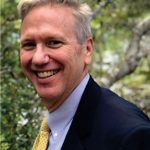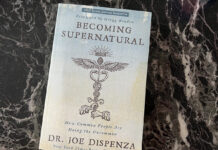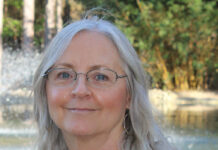 By Maurice Stouse, Financial Advisor and Branch Manager
By Maurice Stouse, Financial Advisor and Branch Manager
If we reflect on almost four decades in the investment world, we cannot find, with any consistency, anyone who can tell you when and how to invest in the next year. For sure, there are market predictions, economic predictions and forecasts and opinions. The question we keep coming back to is: Does anyone really KNOW where the markets, the economy and the world are headed? Sometimes a prognosticator will get it right, but he or she is rarely right on a consistent basis. Why might that be?
Morgan Housel is an author who has written two books on investing and behavior. One is title “Same as Ever” and the other is “The Psychology of Money.” The main theme drawn from these two writings is that the future cannot be predicted, because people and events cannot be predicted. Would anyone have known for sure that Russia would have invaded Ukraine two years ago (and the economic fallout that followed)? Or, as was pointed out, the effects or significance of the coronavirus pandemic? Housel points out that The Economist magazine, well revered in the investing and professional world, predicted neither in its annual forecasts for 2020 and 2022 respectively.
Some call unusual or unpredictable events “Black Swan” events. No one knows when they will appear. It’s impossible to predict things, so we encourage investors to plan and invest according to their time frame, their risk tolerance and their investment objective. These are the big three for most investors.
Charlie Munger, Warren Buffet’s partner, has had many books written about him, as has Buffet. A current read is “The Tao of Charlie Munger” by David Clark. It is replete with lessons from the investing great who passed away in December of 2023. One consistent lesson was for investors to not be in a hurry. We suggest that investors identify companies, or funds, or bonds or instruments that fit your investment objective, their time frame and their comfort level, and then be patient.
2023 tested the patience of many investors as they saw the markets gain substantially for most of the year while perhaps their investments did not. Had they held the so called magnificent seven (META, Google, Apple, Microsoft, Tesla, Nvidia and Amazon) only, they would have seen those returns. Most stocks (the remainder of approximately 500 stocks in the S&P 500) had lesser returns, no returns or perhaps lost up until about October of 2023. Then, in November, interest rates (based upon the 10-year U.S. Treasury note) began to decline (from approximately a high of 5% to 3.9%). The market’s performance for the S&P in November was almost nine percent and many long-term bonds appreciated as much as 6%. December numbers, while not final at this writing were equally compelling. So, what might be learned, or gained, from all of this?
Peter Lynch, the well-known fund manager from Fidelity, said many years ago in one of his three books to not give up hope at the worst possible time and sellout. We have seen this repeated by many investment managers for years, to not sell at the bottom (as if you would know the bottom). Did that happen in 2023? Many investors were convinced that cash or CDs were the best place to be and as a result either sold out and moved to cash or CDs or remained in cash or CDs. To be clear, these low to no-risk investments play a part in most investors’ portfolios. However, we would suggest that if someone has a long-term time frame, to not use a short-term lens, so to speak, when making an allocation decision or a change.
The U.S. economy continues to lead the world in innovation, cost of doing business and opportunity. We look back over the last almost 100 years and see that investors saw the highest returns in large-cap stocks followed by bonds then by cash (Ibbotson Charts). Research, know what you own or what you want to own and why you own it. Know how long you want to own something. Appropriate risk mitigation along with patience might serve investors well in 2024 and beyond.
Maurice Stouse is a Financial Advisor and the branch manager of The First Wealth Management/ Raymond James. Main office located at The First Bank, 2000 98 Palms Blvd, Destin, FL 32451. Phone 850.654.8124. Raymond James advisors do not offer -tax advice. Please see your tax professionals. Email: Maurice.stouse@raymondjames.com.
Securities offered through Raymond James Financial Services, Inc. Member FINRA/SIPC, and are not insured by bank insurance, the FDIC, or any other government agency, are not deposits or obligations of the bank, are not guaranteed by the bank, and are subject to risks, including the possible loss of principal. Investment Advisory Services are offered through Raymond James Financial Services Advisors, Inc. The First Wealth Management and The First Bank are not registered broker/dealers and are independent of Raymond James Financial Services.
Views expressed are the current opinion of the author and are subject to change without notice. The information provided is general in nature and is not a complete statement of all information necessary for making an investment decision and is not a recommendation or a solicitation to buy or sell any security. Past performance is not indicative of future results.
Views: 8

























































